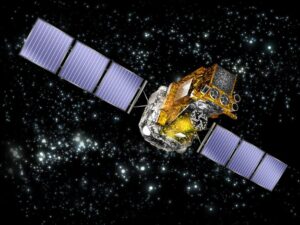SpaceX to launch next-gen US spy satellites today on 100th Falcon 9 flight of the year (Image Credit: Space.com)
SpaceX’s workhorse Falcon 9 rocket is about to hit the century mark for the year.
A Falcon 9 is set to launch a batch of next-gen spy satellites for the U.S. National Reconnaissance Office (NRO) today (Oct. 24) from California’s Vandenberg Space Force Base at 1:13 p.m. EDT (1713 GMT; 10:13 a.m. local time).
The mission, known as NROL-167, will be the 100th Falcon 9 liftoff of 2024. SpaceX will livestream the action via X, beginning about 10 minutes before launch.
NROL-167 will be the fourth launch supporting the NRO’s “proliferated architecture,” a constellation consisting of “numerous, smaller satellites designed for capability and resilience,” according to the agency. We don’t know much about these spacecraft or their activities, which isn’t surprising; NRO satellites’ work tends to be classified.
The first three proliferated architecture missions also took flight on Falcon 9s — NROL-146 in May, NROL-186 in June and NROL-113 in September.
Related: SpaceX launches next-gen US spy satellites and sticks landing
If all goes according to plan, the Falcon 9’s first stage will come back to Earth about eight minutes after liftoff today. It will land on the SpaceX droneship Of Course I Still Love You, which will be stationed in the Pacific Ocean.
It will be the 21st launch and landing for this particular booster, according to a SpaceX mission description. Its most recent flight was NROL-113.
Today’s mission will be SpaceX’s 105th rocket launch of 2024 overall. In addition to the Falcon 9 flights, the company has launched two Falcon Heavy missions and three test flights of its Starship megarocket.
The most recent Falcon Heavy launch, on Oct. 14, sent NASA’s Europa Clipper probe toward the Jupiter system. The most recent Starship test flight occurred a day earlier and featured an unprecedented catch of the vehicle’s first-stage booster by the “chopstick” arms of the launch tower.
Every launch from here on out will add to SpaceX’s record total for the year. The company’s previous high mark was 98 liftoffs, set in 2023.




